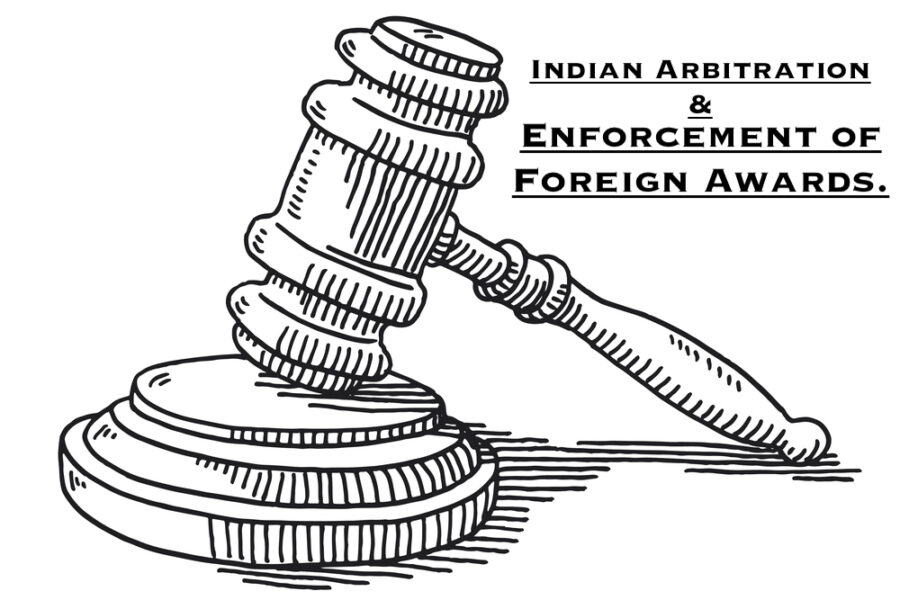INTRODUCTION
The expansion of global trade has made the development of effective dispute resolution procedures necessary. Obtaining a final ruling or award from the courts may not always be a victory; this is particularly true in the Indian context.
We have encountered circumstances in which the opposing parties choose not to engage in the arbitral process or to end it in the middle. Sometimes it is more difficult to enforce these awards or judgements when one party is not present than when the other party has taken part in the proceedings. In some cases, objections have been made not only to the costs that the tribunal has awarded, but also to the jurisdiction of the tribunal or court, depending on the circumstances. Consequently, the phase of implementation of an award or decree warrants a high degree of caution.
The Arbitration & Conciliation Act, 1996 (the “Act”) and the Code of Civil Procedure, 1908 (the “CPC”) primarily govern the enforcement and execution of decrees in India, while the CPC also plays a major role in governing arbitral awards.
ENFORCEMENT OF FOREIGN AWARDS
Both the Geneva Convention on the Execution of Foreign Arbitral Awards, 1927 (the “Geneva Convention”) and the Convention on the Recognition and Enforcement of Foreign Arbitral Awards, 1958 (the “New York Convention”) are ratified by India. If an award is made in a territory that India has notified as a convention country and the party receives a binding award from a nation that has ratified the New York Convention or the Geneva Convention, the award will be enforceable in India.
An execution petition must be filed in order to begin the two-step process of enforcing a foreign award in India. First, a court would decide if the award complied with the Act’s requirements. If an award is determined to be enforceable, it can be applied similarly to a court’s decree. Parties would, however, need to be aware of the potential obstacles at this point, including objections raised by the other party and the need to present the court with original, authenticated copies of the agreement and the award.
REQUIREMENTS FOR ENFORCEMENT OF FOREIGN AWARDS
- Original award or a properly authenticated copy in the format specified by the nation of origin.
- Original agreement or a duly attested copy.
- If applicable, provide the proof that the award is a foreign award
The aforementioned “shall” be presented before the court at the time the application for the enforcement of the foreign award is made, according to Section 47 of the Act. The Supreme Court of India, however, recently ruled that the word “shall” in Section 47 of the Act, which refers to the production of the evidence as specified in the provision at the time of application, should actually be read as “may.” It added that if this interpretation were to be followed, a party requesting the enforcement of the award would not always be required to present a document cited in the award to the court “at the time of the application.”
REGISTRATION AND STAMPING OF FOREIGN AWARDS
The Indian Supreme Court has ruled unequivocally that a foreign award is not subject to being stamped in regards to foreign awards.
In a previous ruling, the Delhi High Court noted in Naval Gent Maritime Ltd. v. Shivnath Rai Harnarain (I) Ltd. that a foreign award could be enforced as a decree and would not need to be registered, and that the stamp duty issue could not impede the determination of the award’s enforceability. The Bombay High Court and the High Court of Madhya Pradesh both used a similar approach in the cases of Vitol S.A. v. Bhatia International Limited and Narayan Trading Co. v. Abcom Trading Pvt. Ltd.
Our law firm, Law Offices of Kr. Vivek Tanwar Associates and Advocates, specializes in providing Legal Assistance in matter relating to Arbitration and the enforcement of arbitral awards.

